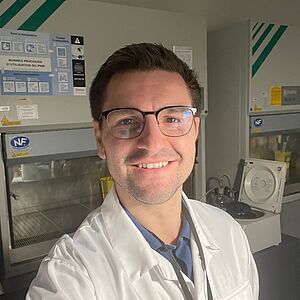
Sébastien Bontemps-Gallo
Research Activity
Research
Bontemps-Gallo’s research centers on how pathogenic bacteria adapt to stresses and how these adaptations influence virulence. The central theme is the study of bacterial signaling pathways, also known as two-component systems or phosphorelays. His multidisciplinary approach ranges from classical genetics to omics and biochemical methods to study pathogens and their molecular mechanisms in situ.
The first research axis involves identifying the two-component systems necessary for bacterial survival and colonization of new hosts. The second axis focuses on defining environmental parameters to determine the stimuli that activate these systems. The third axis investigates the effectors modulated by two-component systems, enabling bacteria to survive, thrive, and invade new hosts.
By utilizing different host-pathogen interaction models (Yersinia pestis-flea; Dickeya dadantii-plant; Borrelia burgdorferi-tick), the research aims to expand understanding of how bacteria sense environmental cues (like osmotic stress, oxidative stress) and reprogram their regulatory networks to survive and cause disease in diverse hosts. Ultimately, the research seeks to identify new therapeutic targets and develop prophylactic and curative solutions against these vector-borne diseases.
Funding
Coordinator
- 2025-2026: MITI CNRS Mapping the dynamics of regulatory networks of two- component systems in the plant pathogen Dickeya dadantii and the plague bacillus Yersinia pestis - MappingNetwork
- 2022-2026: ANR Role of a cell signaling system in the adaptation of Yersinia pestis to its vector - RESISTANT
- 2020-2022: I-Site Young Researcher Adaptation of Yersinia pestis to its vector - APPETISER



